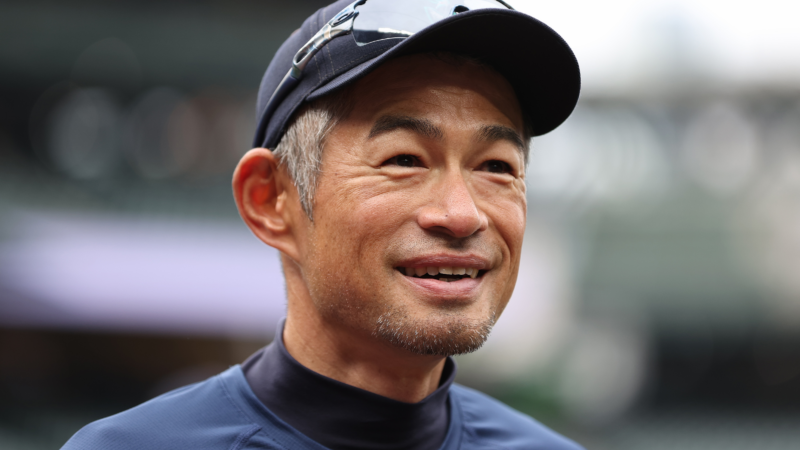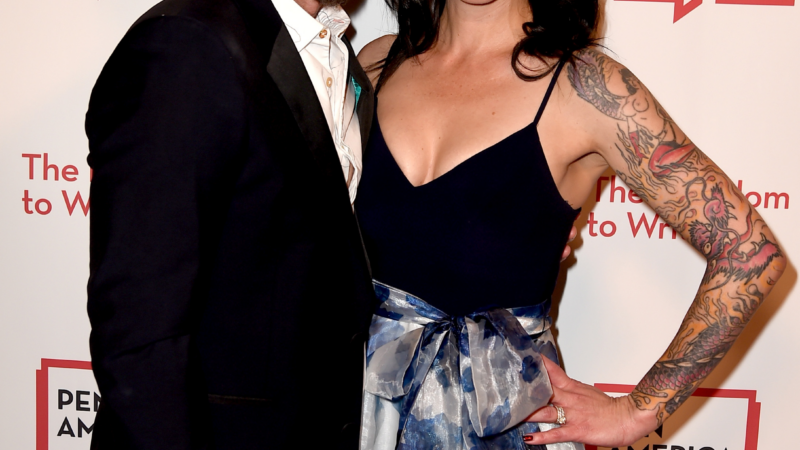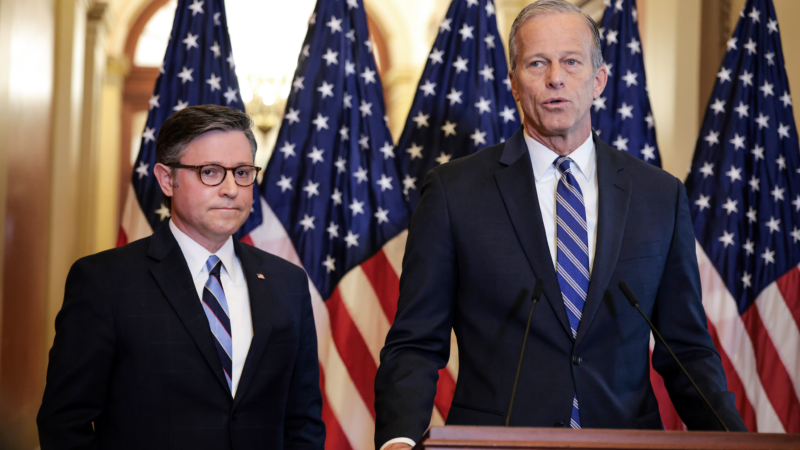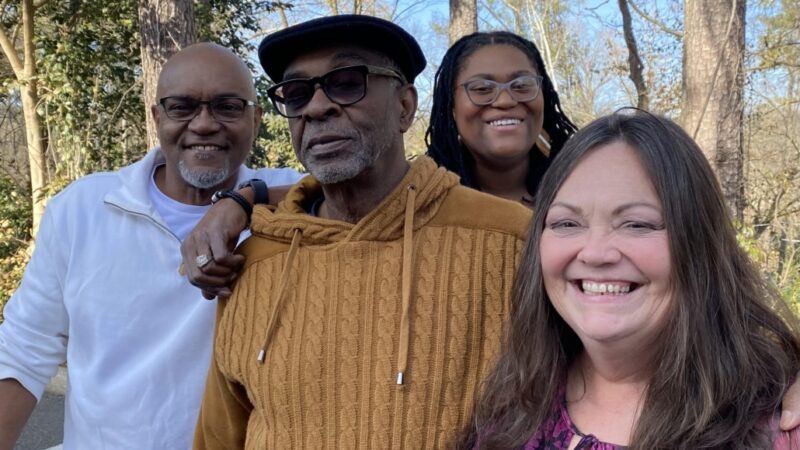When Ichiro retired, his records felt “small” compared to the emotional moments
For Ichiro Suzuki, it isn’t about the records, or the achievements, he says.
It’s not that the Seattle Mariners great doesn’t have them — in fact, there were many in his star-studded career: Rookie of the Year, Most Valuable Player, ten-time All-Star, owner of the single-season hits record, one of only a few dozen MLB players to log 3,000 or more hits.
But asked what from his career stands out, the ever-thoughtful Suzuki has long said it is the emotional moments that will stick with him the most.
Moments like opening day in Seattle in 2018, when fans stood to cheer for his return home to the team where his remarkable Major League career began. And like his final game in an MLB uniform, at the Tokyo Dome in Japan, where a standing ovation lasted for minutes as he walked off the field for the last time, and fans lingered for hours to express their gratitude.
“When I look at [my records] now, they don’t feel that important,” Suzuki said after the Tokyo Dome game. “After experiencing that moment today, everything else seems so small.”

Now, Suzuki is headed to the Baseball Hall of Fame in Cooperstown, a selection so obvious that only one of nearly 400 voters declined to include him on their ballot. And at a time when Japanese players have become more prominent than ever in the U.S., Suzuki will be the first Japanese-born player to appear in the Hall of Fame.
“In 2001, there was probably not one person on Earth who thought this day would come,” he said at an emotional press conference in Seattle on Tuesday. “Being able to reach this day is a feeling I can’t express in words.”
His career disproved doubts about Japanese players
When Suzuki arrived in the U.S. in 2001, he had been a star in Japan for years already. He debuted in 1992 with the Orix BlueWave, a team based in Kobe, and soon it became clear he was a powerhouse.
His rise to stardom came at a time when the national mood in Japan was at a low. The bubble economy of the 1980s had burst, and in 1995, an earthquake struck near Kobe and killed thousands.
People needed something to feel hopeful about, said Kiyoteru Tsutsui, a sociology professor at Stanford who follows Japanese baseball.
Then, soon after the earthquake, the young star led Kobe’s team to a Pacific League pennant and a Japan Series title. “It’s like Hollywood movie stuff,” Tsutsui said. “Everybody in Japan knew him, and he was the superstar in Japan’s baseball.”
That experience changed the way Suzuki viewed his role as a baseball player in the community, he said Tuesday. “At first, there were some who said, ‘This is not the time for baseball.’ We felt that too,” he said. “But we realized that, as professional baseball players, you can make things happen that ordinary people can’t.”
But his jump to the Major Leagues wasn’t seen as a sure thing. At the time, only a few Japanese players had come to the U.S., and they had all been pitchers who didn’t have to field or bat every day.
Suzuki, by contrast, was an outfielder. He would have to play every day, and his small frame — a slender 5’10” — only added to the doubts.
“There were a lot of criticisms and questions surrounding him, whether he’s too small, or he doesn’t have the stamina to withstand the rigors of a major league schedule 162 games,” Tsutsui said. “Some experts predicted that he would fail.”
Suzuki knew his performance would be used to judge other Japanese players in the future. “I remember playing with that pressure on my shoulders,” he said Tuesday.
Now, Japanese players are more prominent than ever in the MLB. The Los Angeles Dodgers pitcher-slugger Shohei Ohtani is baseball’s biggest star.
A nearly unanimous selection
Only one player had ever been selected to the Hall of Fame by a unanimous vote: Mariano Rivera, the dominating Yankees closer who helped New York win five World Series from the mid-90s through the 2000s.
Suzuki was thought to have a chance to be the second unanimous pick. But he fell one vote shy: He was named on 393 of a possible 394 ballots cast for the Hall of Fame, or 99.7%.
The Baseball Hall of Fame does not make ballots public. Some voters choose to do so, but others keep their ballots private. As of Wednesday, the voter who declined to choose Suzuki had yet to step forward.
On sports talk shows and social media, commentators, fans and players alike groaned about the voter. “Whoever is the person who did not vote for Ichiro, he or she must step forward and explain themselves. Not to be pilloried — I’d just like to hear the reasoning, because I can’t fathom a single reason,” said longtime analyst Bob Costas on MLB Network.

Voters may name up to 10 players on their ballot. Some speculated the mystery voter felt Ichiro was a lock and instead used their 10 selections strategically in order to keep other players eligible for future ballots. Or perhaps it was simply a mistake.
Throughout his career, Suzuki was never the type to be rattled or offended by much. On Tuesday, he said that it was “really good” that he had fallen short of unanimity.
“Being imperfect is good, I think,” he said. “In life, it’s because you’re imperfect that you can keep moving forward.”
Transcript:
STEVE INSKEEP, HOST:
Baseball’s Hall of Fame has three new members this morning, including Seattle Mariner star Ichiro Suzuki, the first Japanese player in the Hall. NPR’s Becky Sullivan has his story.
BECKY SULLIVAN, BYLINE: It took only eight games in the Major Leagues for Ichiro Suzuki to command the nation’s attention.
(SOUNDBITE OF ARCHIVED RECORDING)
UNIDENTIFIED COMMENTATOR: Ground ball, base hit in the right field.
SULLIVAN: His Mariners were playing the Oakland A’s. Seattle had a slim lead in the eight inning when the As came out swinging. With a runner on base, someone slapped a hit to right field, where the Mariners’ new outfielder from Japan was waiting to throw the runner out.
(SOUNDBITE OF ARCHIVED RECORDING)
UNIDENTIFIED COMMENTATOR: Holy smoke, a laser beam strike from Ichiro.
SULLIVAN: By the time Ichiro came to the states in 2001, he had been a star for years in Japan, where he played for a team in Kobe. He debuted there in ’92, at a time when the national mood in Japan was at a low. The bubble economy of the 1980s was bursting. and in 1995, disaster struck in Kobe when a massive earthquake killed thousands. People needed something to feel hopeful about, said Kiyoteru Tsutsui, a sociology professor at Stanford who follows Japanese baseball.
(SOUNDBITE OF ARCHIVED RECORDING)
KIYOTERU TSUTSUI: And in that year, remarkably, I mean, it’s like a Hollywood movie, his team, based in Kobe, won Japan’s championship after the earthquake hit Kobe hard. I mean, everybody in Japan knew him, and he was the superstar in Japan’s baseball.
SULLIVAN: Here in the U.S. though, there was skepticism about Japanese players. Only a few had made it to the major leagues, and they were pitchers who didn’t have to field or bat every day. Ichiro was an outfielder, a pretty small guy, too, and there were a lot of doubts about him.
(SOUNDBITE OF ARCHIVED RECORDING)
TSUTSUI: Whether he’s too small, he doesn’t have the stamina to withstand the rigors of Major League schedule of 162 games, actually, some experts predicted that he would fail.
SULLIVAN: When he arrived in Seattle in 2001, the reception was not all good.
(SOUNDBITE OF ARCHIVED RECORDING)
ICHIRO SUZUKI: (Speaking Japanese).
SULLIVAN: During his first training camp, he said, people told him to go back to Japan. but things changed fast. That year, Suzuki won rookie of the year and American League most valuable player, just the second player in baseball history to do that. At the plate, he was a terrific batter in the small ball way, with singles and stolen bases to spare. He was an All-Star 10 times. He had more than 3,000 hits over his Major League career. After stints in New York and Miami, Suzuki retired a Mariner in 2019. His last game with the Mariners was in Japan. The crowd at the Tokyo Dome gave him an enormous ovation.
(SOUNDBITE OF ARCHIVED RECORDING)
UNIDENTIFIED ANNOUNCER: Ichiro Suzuki.
(CHEERING)
UNIDENTIFIED COMMENTATOR: For the final time coming off a Major League field.
SULLIVAN: Suzuki told reporters afterwards his records and achievements didn’t feel important anymore by comparison.
(SOUNDBITE OF ARCHIVED RECORDING)
SUZUKI: (Speaking Japanese).
SULLIVAN: That moment, he said made everything else seem so small. Now he’s come to the Hall of Fame at a moment when Japanese players are more prominent than ever in Major League Baseball, and the doubts about them are gone for good. Becky Sullivan, NPR News.
(SOUNDBITE OF MUSIC)
Trump administration changes course on in-person requirements for Social Security
After announcing social security recipients would be required to appear in-person at office locations, the Trump administration is now backtracking.
Jillian Lauren: What we know about police shooting of Weezer bassist’s wife
Jillian Lauren suffered a non-life-threatening injury this week when police shot her in her yard after they say she pointed a gun at them. Details about the incident in Los Angeles are still emerging.
House approves budget framework, kickstarting work on Trump’s domestic agenda
House Republicans narrowly adopted a multitrillion dollar budget framework on Thursday, paving the way for lawmakers to begin work on many of President Trump's top policy priorities.
Where do tariffs stand? A look at what’s in place and what’s on pause
Trump announced a 90-day pause on most country-specific tariffs, but left other duties in place. Here's a look at where things stand and what could happen next.
Shark attack survivor presses Alabama for an alert system to keep people safe in the water
Lulu Gribbin was one of three people bitten by a shark during a string of attacks off the Florida Panhandle. On Wednesday, she asked Alabama lawmakers to support a proposed shark attack alert system.
Reflections after 43 years in an Alabama prison
James Jones is one of thousands of men who served life without parole in an Alabama prison. He spent 43 years at the St. Clair Correctional Facility before being released at the age of 77.









